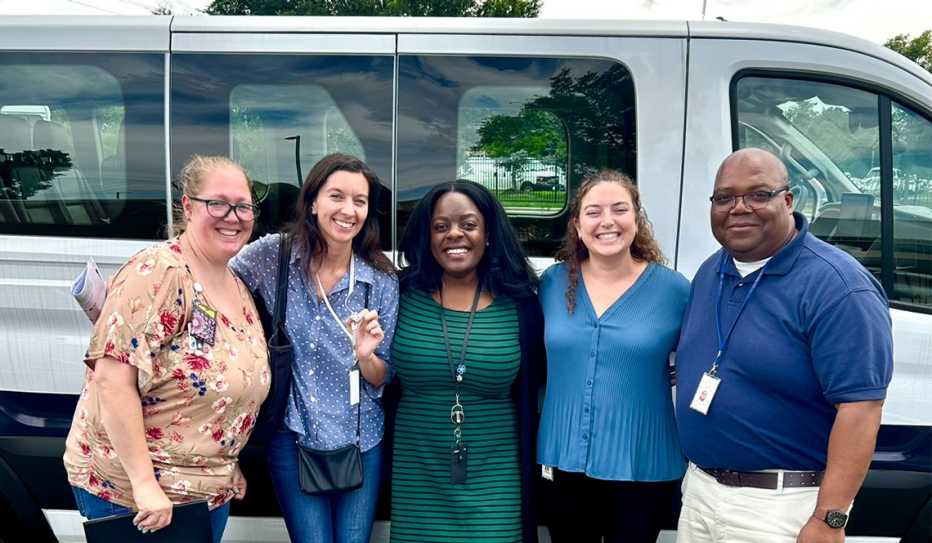AARP Hearing Center


The Challenge: “How can we make transportation not just accessible but welcoming and supportive for older adults and people living with dementia in our communities?”
That question was asked at a 2023 meeting in Mecklenburg County, North Carolina, a member of the AARP Network of Age-Friendly States and Communities.
That’s when “the magic happened,” recalls Ashley Stevens, the co-chair of Dementia-Friendly Charlotte-Mecklenburg.
The Response: The inquiry led to a collaborative effort between Stevens’ organization, the Centralina Area Agency on Aging and the Mecklenberg Transportation System to develop "Age & Dementia-Inclusive Communities: From Awareness to Action," a workshop to equip county bus drivers with the skills needed to successfully support older adults, individuals living with dementia, and caregivers.
Dementia-Friendly Tips for Bus Drivers
Something as simple as a friendly face can help a person living with dementia feel at ease.
Provide information clearly and succinctly, and give clear, concise directions.
A person with dementia might ask the same question multiple times. Respond with kindness.
Be patient: People with dementia may become frustrated because of fear, overstimulation or difficulty in expressing their thoughts.
Maintaining eye contact and using simple language can help mitigate the passenger’s frustration.
If a rider seems confused, ask they have an address written on a piece of paper. Invite them to take a seat near the front of the bus and explain that you will alert them when the bus arrives at their departure stop.
Adapted from the National Aging and Disability Transportation Center
The 2-1/2 hour training was broken into three sessions or focus areas:
- Session 1 provided information about aging and age-related changes. (Says Stevens: “Ageism is widespread. Negative assumptions about aging can cross over into our service delivery. That can have a negative impact on our customers.”)
- Session 2 focused on dementia-awareness and how best to engage with people who are living with dementia.
- Session 3 explored communications exercises, including one during which attendees had to guide an instructor, acting as a passenger with dementia, through the steps for making a peanut butter and jelly sandwich. “It sounds simple, but instructions such as, ‘Put the peanut butter on the bread,’ can result in the instructee putting the jar of peanut butter on top of the bread,” Stevens explains. “The exercise helps people think about how to provide clear, direct instructions to a passenger who might become easily confused.”
Dementia-Friendly Charlotte Mecklenburg partnered with Age-Friendly Mecklenburg to view, through an “age-friendly lens,” the vehicles and experience of waiting for a bus and being a passenger.
That research informed the group’s action plan, which includes recommendations for softer lighting and clearer signage. Drivers were also provided with a script they can consult if they need help communicating with a passenger who is experiencing cognitive challenges.

































































